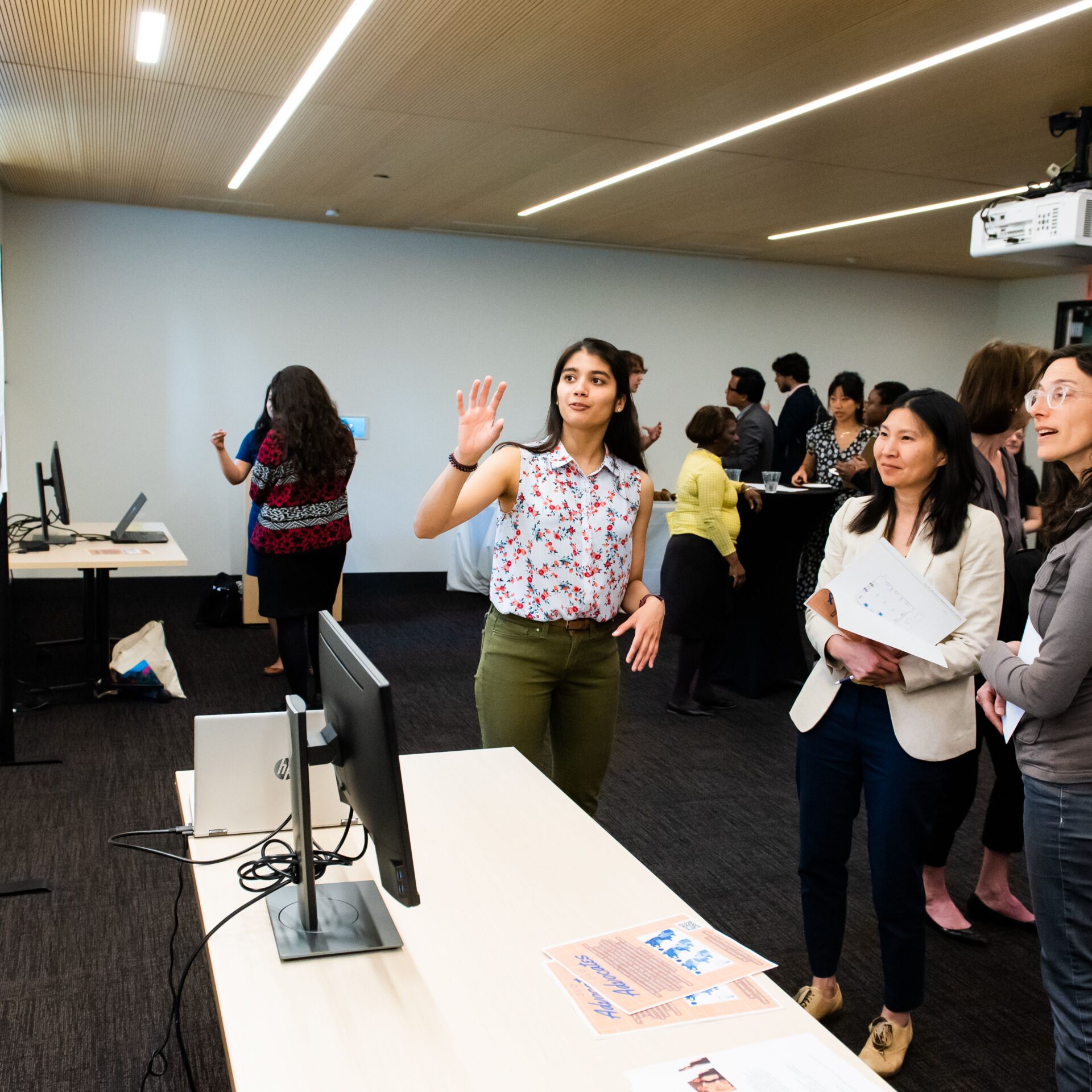Join us on Thursday March 28 to hear from Jasmine Graham, Executive Director of Mid-Hudson Energy Transition, Crystal Johnson, Assistant Secretary of Environmental Justice, MA Executive Office of Energy and Environmental Affairs, and Oleander Stone, Deputy Director of Climate Equity and Environmental Justice on careers in environmental justice, and Shamar A. Bibbins, MC/MPA student at the Harvard Kennedy School and Senior Program Office for the Environment Program at the Kresge Foundation
Location: Salata Institute, HKS Belfer Floor 3.5
Time: 6-8pm
Register Now
Jasmine Graham (she/they) joined Mid-Hudson Energy Transition (MHET) in April 2023 as the first permanent Executive Director. Prior to MHET, Jasmine served as the Senior Equity and Affordability Advisor at the Building Decarbonization Coalition. She previously held roles at WE ACT for Environmental Justice, where she was responsible for strengthening and advancing the organization’s energy policies as their Energy Justice Policy Manager, and Sustainable Westchester, where she managed the first and largest community choice aggregation program in New York State.
Jasmine is appointed to two New York City Advisory Boards – the Climate Mobilization Advisory Board and the Sustainability Advisory Board – where she presents implementation recommendations for the City’s landmark building decarbonization law, Local Law 97, and the long-term sustainability plan for the city, PlaNYC.
Jasmine is currently pursuing an MBA in Sustainability at Bard College, and in her limited free time, she can be found hanging out with her partner, Carolyn, and their adorable pup, Zero.
Crystal Johnson currently serves as the Assistant Secretary of Environmental Justice, Executive Office of Energy and Environmental Affairs, Commonwealth of Massachusetts and an astute Senior Environmental Planner, Energy Strategist, and Sustainability Specialist with more than twenty-five years of accomplishments in strategic planning, management, policy, research, and assessment of energy (energy equity, clean energy workforce development, energy efficiency/electrification, energy management, renewables, and emissions inventory), environmental resources (water/wastewater, air, natural resources, food systems, hazardous materials, and other), and sustainability (planning and operations of buildings and best practices for the human element).
She leverages her experience and expertise for climate action and focuses on environmental justice and equity. A graduate of the University of California at Berkeley, Crystal’s illustrious career is marked by numerous accolades, including appointments by former Massachusetts Governor Baker to the Energy Facilities Siting Board and recognition from the United Nations for her Sustainability and Energy Strategist Award.
Notably, Crystal has played pivotal roles in shaping progressive energy and sustainability programs, providing strategic leadership in areas such as energy efficiency, environmental justice, and clean energy workforce development. Her extensive portfolio includes advising Energy Efficiency Advisory Councils, mentoring clean tech startups, and spearheading initiatives to promote sustainability across various sectors, including transportation and education.
Oleander Stone (they/them) is the new Deputy Director of Climate Equity and Environmental Justice with the Climate Team at EEA. In this role, they work to center accountable engagement and equity in the various initiatives of the Climate Team. Prior to this job they were the Municipal Vulnerability Preparedness program Regional Coordinator for the Berkshires and Hilltowns with a technical assistance focus on equity and engagement. They went to graduate school at UMass Amherst where they studied geology with a focus on geologic carbon sequestration. As a teenager, Oleander helped develop a native plant nursery and has continued to collect native seeds for propagation and can often be found giving plant matter to friends and neighbors.
Shamar A. Bibbins is a MC/MPA student at the Harvard Kennedy School. She is an innovative leader who partners with environmental organizations, public sector leaders, and community and grassroots advocates to drive transformative change in environmental and climate justice, public health and climate change, and economic inclusion within the non-profit and philanthropic sectors. Shamar’s work supports efforts that influence local, state, and federal climate change policy development and implementation to directly benefit communities of color and other groups disproportionately burdened by environmental pollution and historically underrepresented in policy development.
Since 2014, Shamar has served as a senior program officer for the environment program at the Kresge Foundation, a private, U.S.-based foundation that works to expand opportunities in America’s cities through grantmaking and social investing. While at Kresge, Shamar oversaw the successful implementation of the Foundation’s Climate Change, Health, and Equity Initiative, a $23 million, multi-year national partnership between Kresge’s Environment and Health programs that addresses the intersecting imperatives of the impacts of climate change on human health. Shamar’s grantmaking also supports efforts that advance diversity, equity, racial justice, and inclusion in the environmental nonprofit and philanthropic fields.
Prior to Kresge, she served as Director of National Partnerships at Green for All, a national, U.S-based nonprofit organization dedicated to building a green economy strong enough to lift people out of poverty. Shamar earned a bachelor’s degree in science, technology, and society from Vassar College, where she received distinction on her senior thesis, Race, Class, and Environment. She was awarded a Fulbright Fellowship to Japan, where she conducted field research on the environmental and social implications of unprecedented mercury dumping in Minamata Bay in Kyushu, Japan.
A native of Detroit, Michigan, Shamar is inspired and guided by a deep belief in the power to effect change. She cares deeply about healing people and the planet and is committed to improving the health and well-being of underrepresented groups across the globe by addressing structural changes to environmental and economic policies. She serves on the Board of Directors of Community Wealth Partners in Washington, D.C., and is a Philanthropic Trustee of The Solutions Project in Oakland, California. She is a yogi, and enjoys hiking, running, writing, ocean views, and listening to live music.

